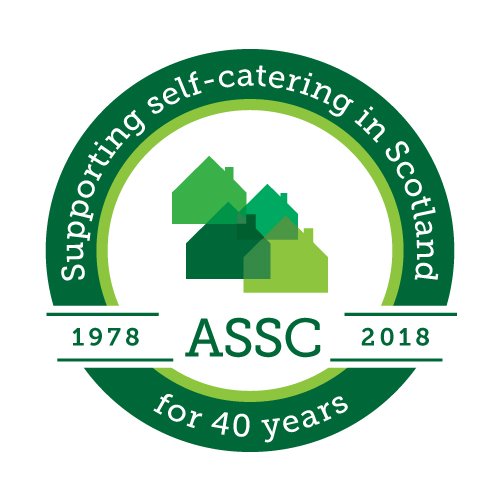Three leading Scottish tourism organisations have welcomed a motion passed by Highland Council in support of Scotland’s self-catering sector.
The Association of Scotland’s Self-Caterers (ASSC), Scottish Land and Estates (SLE), and the Scottish Bed and Breakfast Association (SBBA) have all expressed their thanks to councillors who passed the motion, which urges the Scottish Government to ditch its planned licensing scheme for self-catering.
Specifically, the motion calls for the government in Edinburgh to instead adopt the ASSC’s proposed mandatory registration scheme, dismissing the SNP’s plan for licensing as “not appropriate for the Highlands”.
Councillor Gordon Adam, who spoke in favour of the motion, criticised the Scottish Government’s plans for a licensing as being unfair, costly, and especially unfit for purpose in the Highlands.
The motion passed by 20 votes to 18 at full council.
Leaders from all three organisations have come together to congratulate the council on a spirited debate and on showing its support for Scottish tourism.
The short-term letting and wider tourism industry has repeatedly called for the Scottish Government to listen to expert industry concerns and to opt for a more flexible, proportionate, and business-friendly registration scheme.
Scottish self-catering is a vital part of the country’s world-famous tourism offering and the Highlands are well-renowned as having some of the most stunning and welcoming places to stay.
If licensing was brought in, especially in the context of the COVID-19 pandemic which has decimated the industry, there is the real possibility that many small businesses may see their livelihoods threatened.
The ASSC, SBBA, and SLE all reiterate their thanks to Highland Council for taking this principled stand and look forward immensely to continuing to work with them as valued stakeholders and partners.
Association of Scotland’s Self-Caterers Chief Executive, Fiona Campbell, said:
“At a time when business across Scotland, especially those of us in tourism, are focused on recovering from COVID-19 and getting people back through our doors, it is completely risible that the administration in Edinburgh would think about trying to hamper our recovery with such a punitive and restrictive scheme.
“Thankfully, cooler heads appear to be in charge in the Highlands and I’m delighted to be able to thank Highland Council for passing this motion that shows their support for us.
“Self-catering properties in the Highlands offer some of the best holiday experiences in the country and it’s great to know that local government in the area supports us in what we do.”
Scottish B&B Association Chairman, David Weston, said:
“Family-run B&Bs and guesthouses are a cornerstone of Scotland’s tourism offer, and a vital contributor to the fragile economies of our rural and coastal communities, highlands and islands.
“So we hugely welcome Highland Council’s backing for our call, alongside ASSC and others, to the Scottish Government to drop the licensing scheme as currently proposed and instead adopt a low or no-cost, light touch accommodation registration scheme, as we have been suggesting since 2017.
“That would enable the Scottish Government to meet its objectives in protecting consumer safety, level the playing-field between compliant businesses and new operators on platforms, yet at the same time avoid the cost and burdens on microbusinesses which the current proposals represent.”
Commenting Scottish Land & Estates Policy Adviser, Simon Ovenden, said:
‘’We are happy to see a practical and proportionate response from Highland Council on the issue of short-term lets legislation.
“We hope that the Scottish Government listens to Highland Council as it is local authorities across Scotland who will be responsible for implementing the national regulations.
‘While we recently welcomed the Scottish Government recognising the collective call of stakeholders including SLE to have a serious reassessment of its short-term lets proposals, there remains outstanding issues and we are looking forward to meeting with the Cabinet Secretary soon to find a workable solution for all and ensure that rural needs, including those in the Highlands, are fully met.’’
Editor’s Notes
The full text of the motion reads:
“Council strongly urges the Scottish Government to drop its proposed licensing scheme for short-term holiday lets and instead adopt the registration scheme proposed by the Association of Scottish Self Caterers. This would be far less costly for operators and less onerous for the Highland Council to administer, whilst providing proven health and safety protection. The proposed scheme is not appropriate for the Highlands.”
ASSC press release coverage
- Ross-shire Journal, Tourism bodies Association of Scotland’s Self-Caterers, Scottish Land and Estates and Scottish Bed and Breakfast Association back Highland Council opposition to short-term let licensing, 30/10/21
- Strathspey Herald, Highland Council self-catering licence concerns welcomed by tourism bodies, 29/10/21
- John O’Groat Journal, Scottish Government self-catering licence plans slammed by tourism groups and Highland Council, 29/10/21
- Inverness Courier, Tourism bodies ASSC, SLE and SBBA back Highland Council opposition to short-term let licensing, 29/10/21
- Northern Times, Highland Council urges Scottish Government to ditch planned licensing scheme for self-catering properties, 07/11/21
- Ross-shire Journal, Highland Council urges Scottish Government to ditch planned licensing scheme for self-catering properties, 06/11/21
